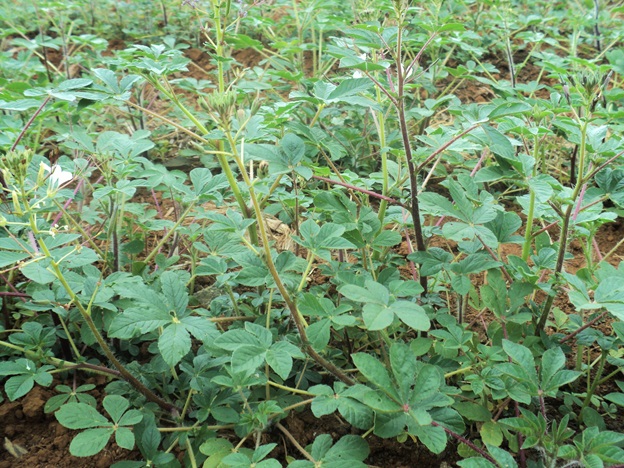Traditional vegetable farmers in Siaya have tripled income from Sh15 to Sh48 per kilogram after joining a cooperative society to market their produce. Initially farmers in the region sold their produce individually with reduced bargaining power according to a report by the Kenya Agricultural Productivity Project.
After forming the Siaya Local Vegetable Producers Value Chain community-based organization eight years ago, the area under production of local vegetables by the members of the farmer CBO rose from quarter an acre to one acre per member, improving yields from 400 kilos to 1500 kilos per acre. Likewise, there was an increase in quantity sold from 240 tons to 4344 tons of traditional vegetable leading to subsequent increase in revenue to the farmers from Sh3.7m to Sh169.2m.
The formation of the society was promoted by the Kenya Agricultural Productivity Project mobilizing and training farmers in the region on the importance of collective marketing.
KAPAP reports that farmers in 15, out of 54, locations in the county registered the highest number of people who expressed interest and enlisted in the project. These farmers formed common interest groups in each of the 15 locations. The CIGs came together and transformed into the Siaya Local Vegetable Producers Value Chain, community-based organization (CBO), which got registered in December 2011. Initially, the CBO had 1,200 (685 Men + 515 Women) members, recruited from the 15 locations. The CIGs also identified training sites and the beneficiary host farmers.
The farmer CBO then transformed itself into the Siaya Vegetables Production Co-operative Society (SIVEPCO). The farmer CBO, with the guidance of extension officers, developed an enterprise development plan. This also guided the development of a business plan for African indigenous vegetables.
The farmers, through the CBO, were then trained on how to develop and manage agribusiness, co-operatives and entrepreneurship, and quality control of produce by sorting and grading.
Related content
Women group earns Sh10,000 in three months from indigenous vegetables flour
Avocado, French beans, flowers, vegetables and peanuts market ripe in China
Varsity launches solar drier that preserves meat, maize, vegetables and fruits for up to one year
Spider plant. Courtesy
The cooperative society currently co-ordinates the bulking and collective marketing of produce and in the process guarantees sustainability of the project. The co-operative also helps in building the farmer capacity, promoting agribusiness through its collection centers, market linkages and linkage to other services, value addition, and sorting and grading of farmer produce.
The farmers sell the produce in Kisumu markets and hotels.
According to data from the Kenya National Bureau of Statistics, vegetable earnings increased by 9.6 per cent to Sh16.9bn from 50,000 tons of produce in the first eight months of 2018 compared to a similar period in 2017.
African traditional vegetables are considered a source of healthy food and of medicinal value. In Kenya they are regarded as traditional food crops.
